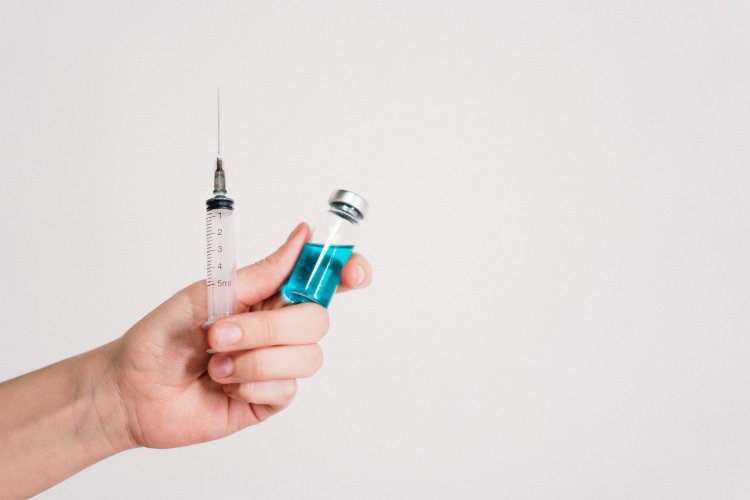Novavax and Serum Institute of India Announce First Emergency Use Authorization of Novavax' COVID-19 Vaccine in Adolescents ≥12 to <18 in India

GAITHERSBURG, Md. and PUNE, India: Novavax, Inc. (Nasdaq: NVAX), a biotechnology company dedicated to developing and commercializing next-generation vaccines for serious infectious diseases, and Serum Institute of India Pvt. Ltd. (SII), the world's largest vaccine manufacturer by volume, announced that the Drugs Controller General of India (DCGI) has granted emergency use authorization (EUA) for Novavax' protein-based COVID-19 vaccine for adolescents aged ≥12 to <18 years in India. The vaccine, also known as NVX-CoV2373, is manufactured and marketed in India by SII under the brand name Covovax™ and is the first protein-based vaccine authorized for use in this age group in India.
"We're proud of this first approval in adolescents given the efficacy and safety that our data show in this population, and that our COVID-19 vaccine will provide an alternative protein-based vaccine option for individuals 12 years of age and older in India," said Stanley C. Erck, President and Chief Executive Officer, Novavax. "We hope that this authorization of our COVID-19 vaccine in adolescents is the first of many worldwide so that families have an additional choice built on a well-understood platform used in other vaccines for decades."
A Phase 2/3, observer-blinded, randomized, controlled study in a total of 460 Indian adolescents aged ≥12 to <18 years was conducted to evaluate the safety and immunogenicity of Covovax. The study demonstrated that Covovax was well-tolerated with a reassuring safety profile. Furthermore, the data indicated that Covovax is immunogenic in adolescents aged ≥12 to <18 years. The authorization in India also references the ongoing PREVENT-19 pivotal Phase 3 pediatric expansion trial of NVX-CoV2373 in adolescents in the U.S. aged ≥12 to <18, results of which were shared in February.
"The approval of Covovax for adolescents 12 and older in India marks another significant milestone in strengthening our immunization efforts across India and LMICs," said Adar Poonawalla, Chief Executive Officer, Serum Institute of India. "We are proud to deliver a protein-based COVID-19 vaccine with a favorable safety profile to the adolescents of our nation."
Covovax is the fourth vaccine to receive EUA from the DCGI for use among adolescents 12 and older. The safety and efficacy of Covovax in adolescents aged less than 12 years have not yet been established; however, studies evaluating the safety and immunogenicity of Covovax for the age groups of ≥7 to <12 and ≥2 to <7 years in India are underway.
DCGI initially granted EUA for Covovax for adults 18 years old and above in December. In addition, Covovax has received Emergency Use Listing (EUL) from the World Health Organization, as well as EUA in Indonesia, the Philippines, and Bangladesh. For additional information on Covovax, please visit the following websites:
Authorized Use of Novavax' COVID-19 Vaccine in India
The Drugs Controller General of India (DCGI) has issued a permission for restricted use in emergency situation for Covovax for active immunization to prevent COVID-19 caused by SARS-CoV-2 in individuals 12 years of age and older.
Authorization in the U.S.
NVX-CoV2373 has not yet been authorized for use in the U.S. by the U.S. FDA.
Important Safety Information
- NVX-CoV2373 is contraindicated in persons who have a hypersensitivity to the active substance, or to any of the excipients.
- Events of anaphylaxis have been reported with administration of COVID-19 vaccines. Appropriate medical treatment and supervision should be available in case of an anaphylactic reaction following the administration of the vaccine. Close observation for at least 15 minutes is recommended and a second dose of the vaccine should not be given to those who have experienced anaphylaxis to the first dose of NVX-CoV2373.
- Anxiety-related reactions, including vasovagal reactions (syncope), hyperventilation, or stress‐related reactions may occur in association with vaccination as a psychogenic response to the needle injection. It is important that precautions are in place to avoid injury from fainting.
- Vaccination should be postponed in individuals suffering from an acute severe febrile illness or acute infection. The presence of a minor infection and/or low-grade fever should not delay vaccination.
- NVX-CoV2373 should be given with caution in individuals receiving anticoagulant therapy or those with thrombocytopenia or any coagulation disorder (such as haemophilia) because bleeding or bruising may occur following an intramuscular administration in these individuals.
- The efficacy of NVX-CoV2373 may be lower in immunosuppressed individuals.
- Administration of NVX-CoV2373 in pregnancy should only be considered when the potential benefits outweigh any potential risks for the mother and foetus.
- The effects with NVX-CoV2373 may temporarily affect the ability to drive or use machines.
- Individuals may not be fully protected until 7 days after their second dose. As with all vaccines, vaccination with NVX-CoV2373 may not protect all vaccine recipients.
- The most common adverse reactions observed during clinical studies were headache, nausea or vomiting, myalgia, arthralgia, injection site tenderness/pain, fatigue, and malaise.















































